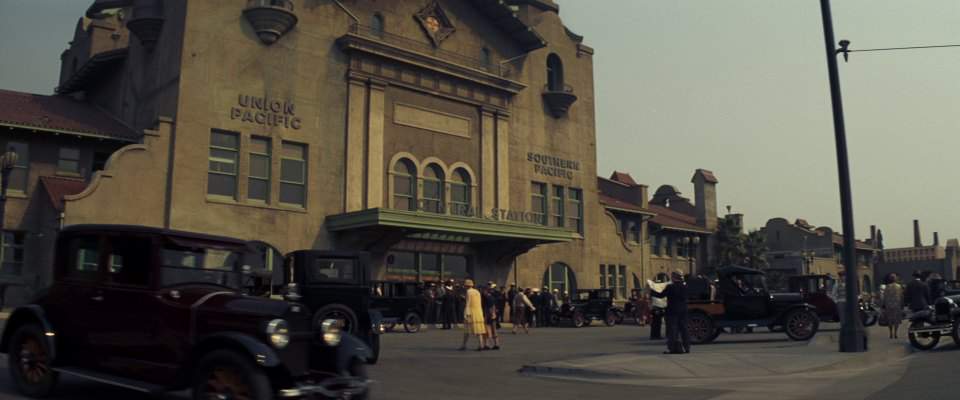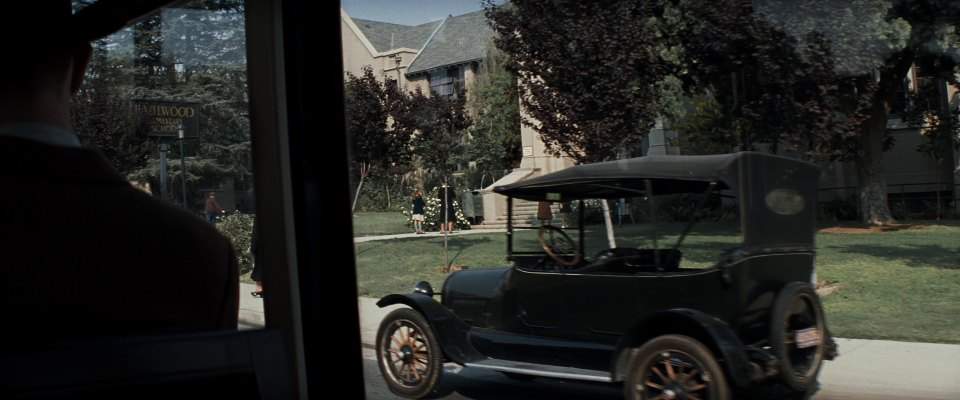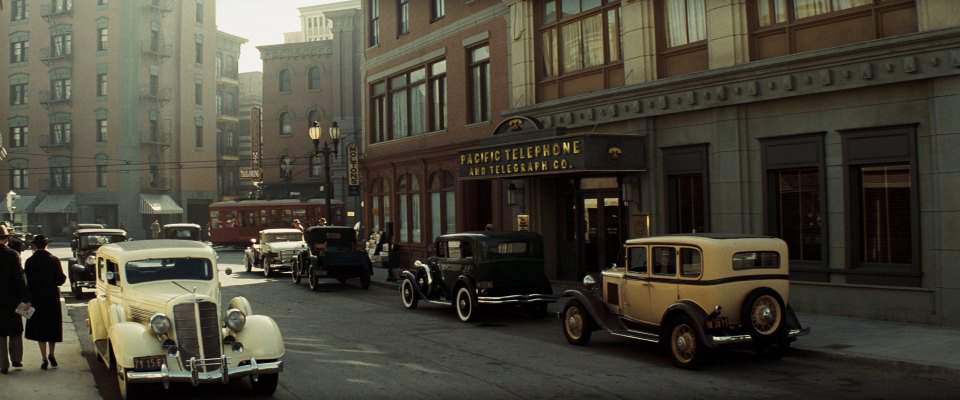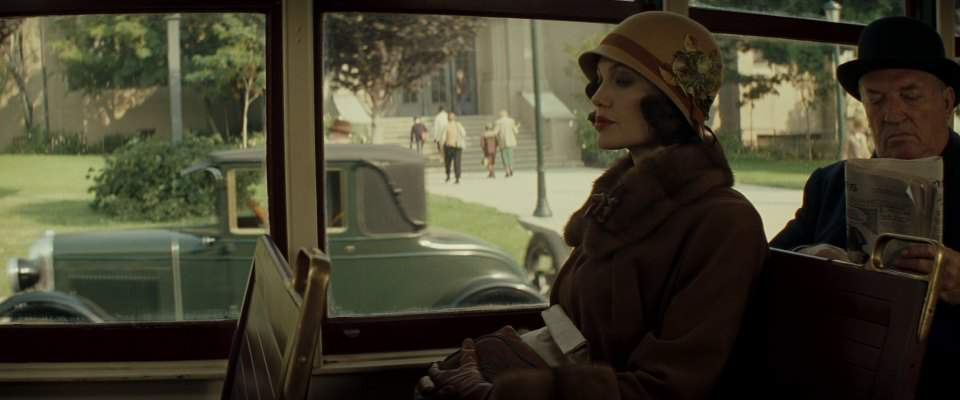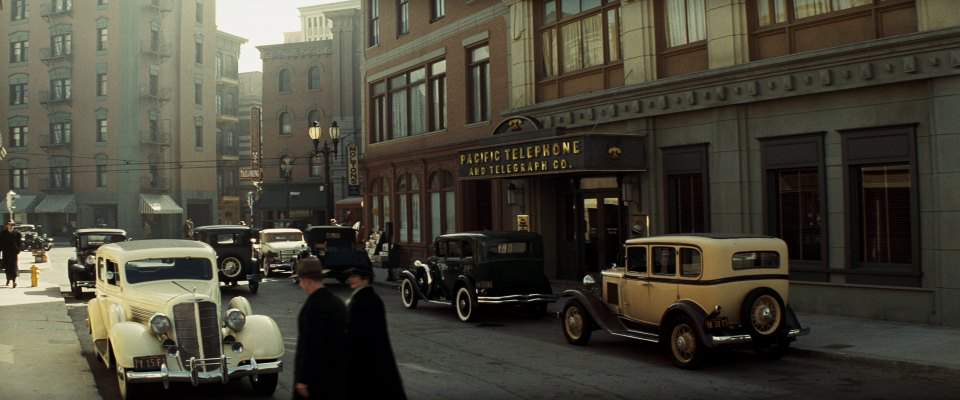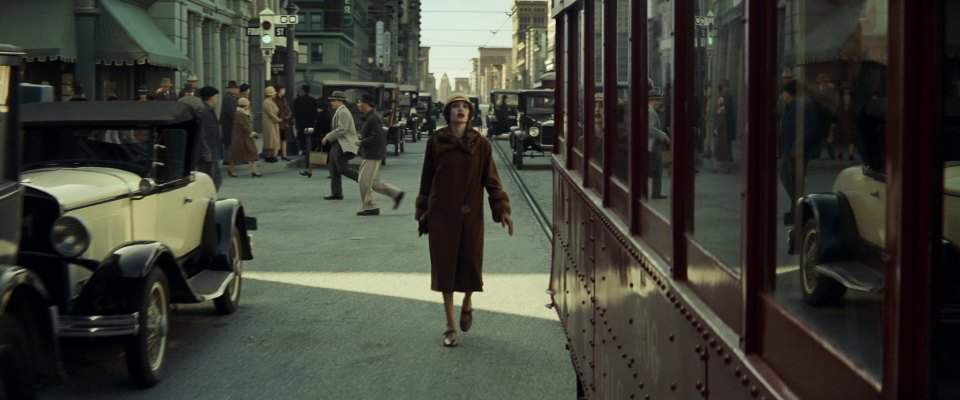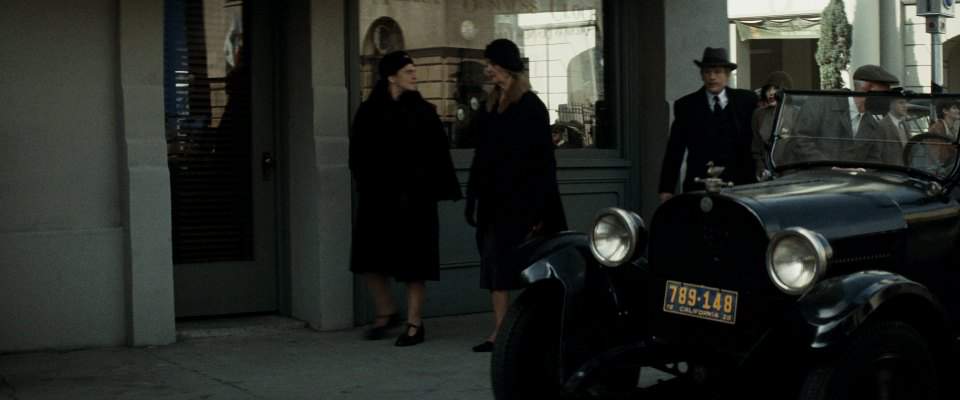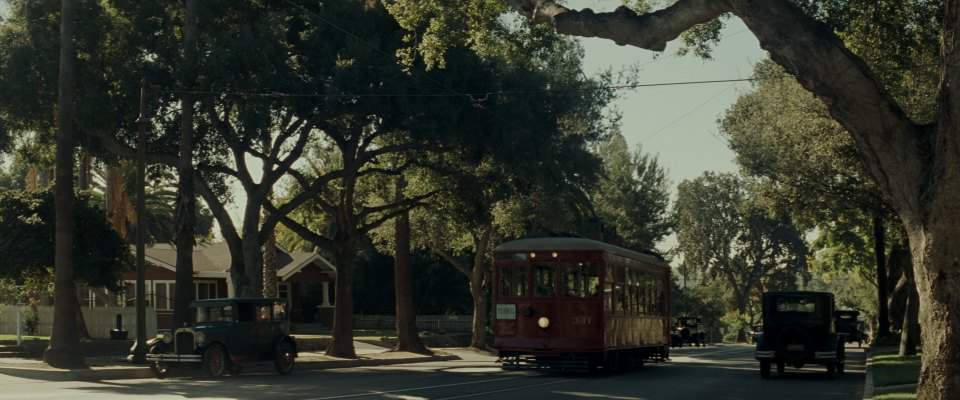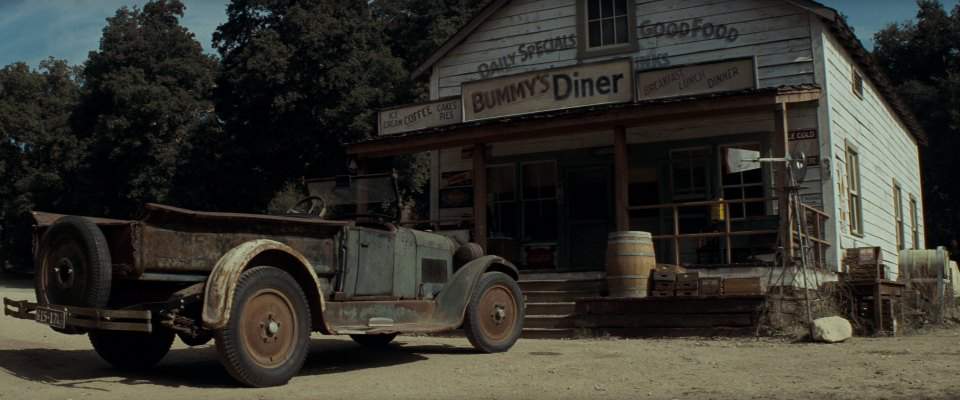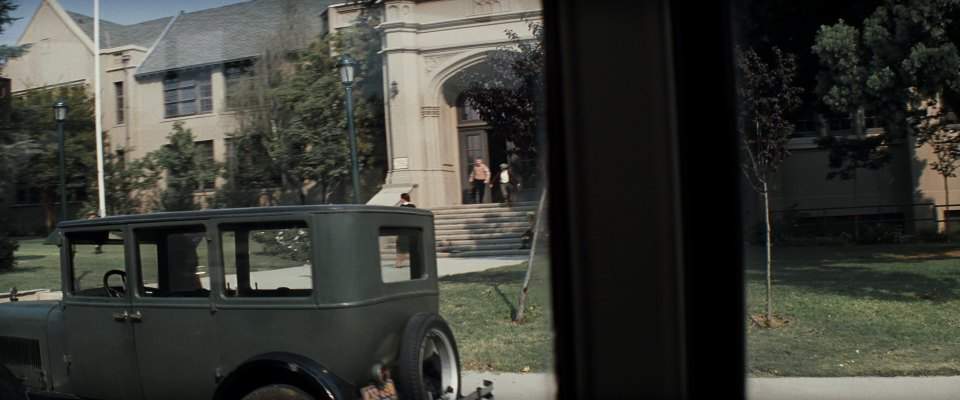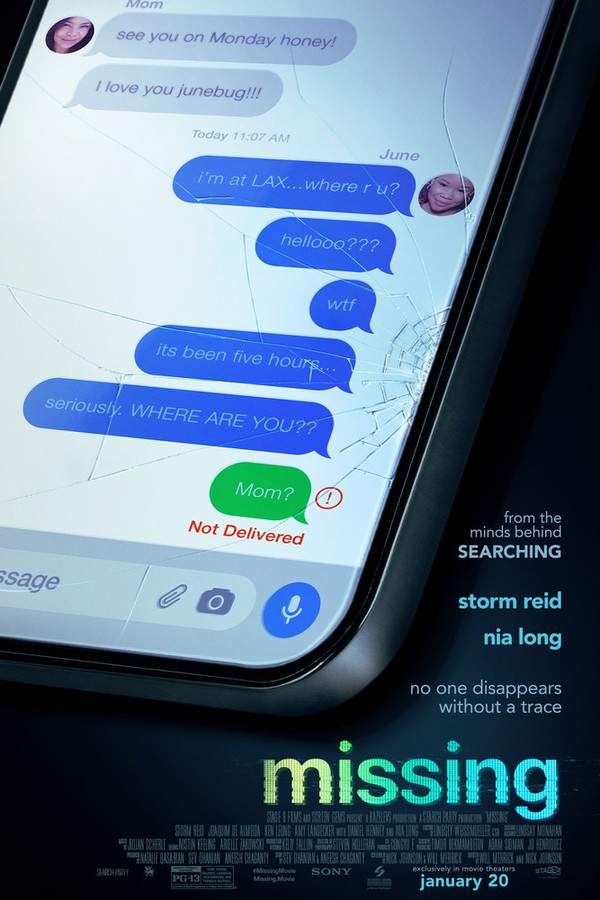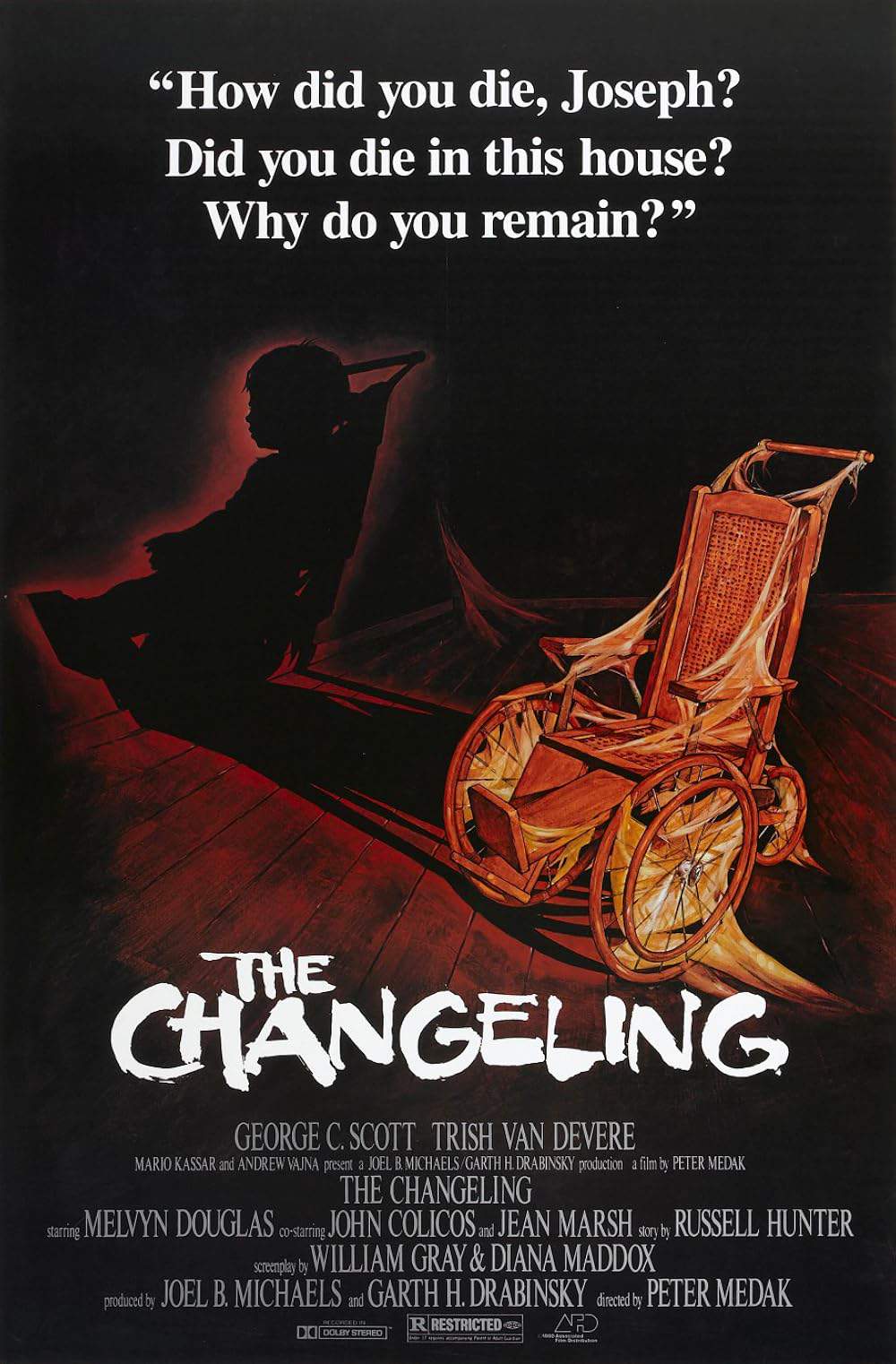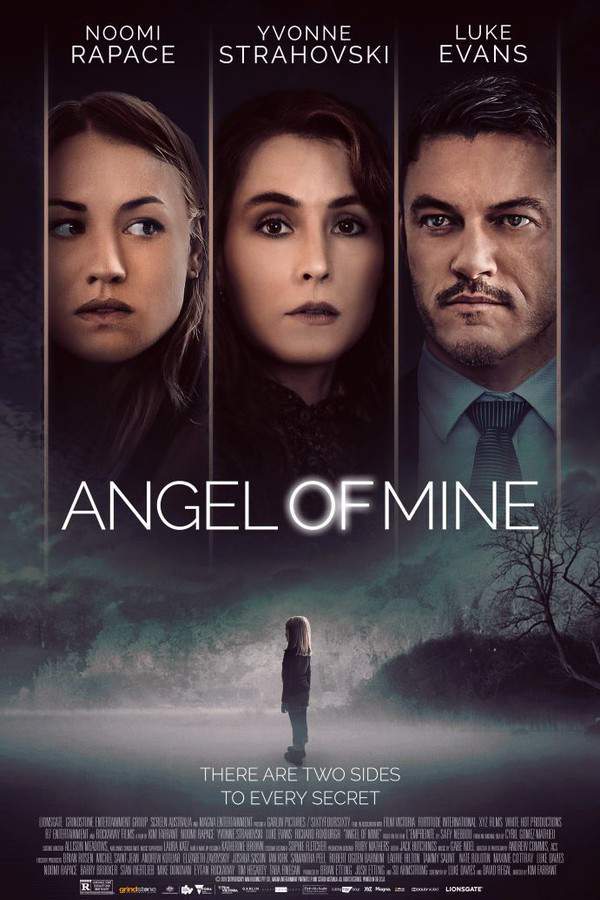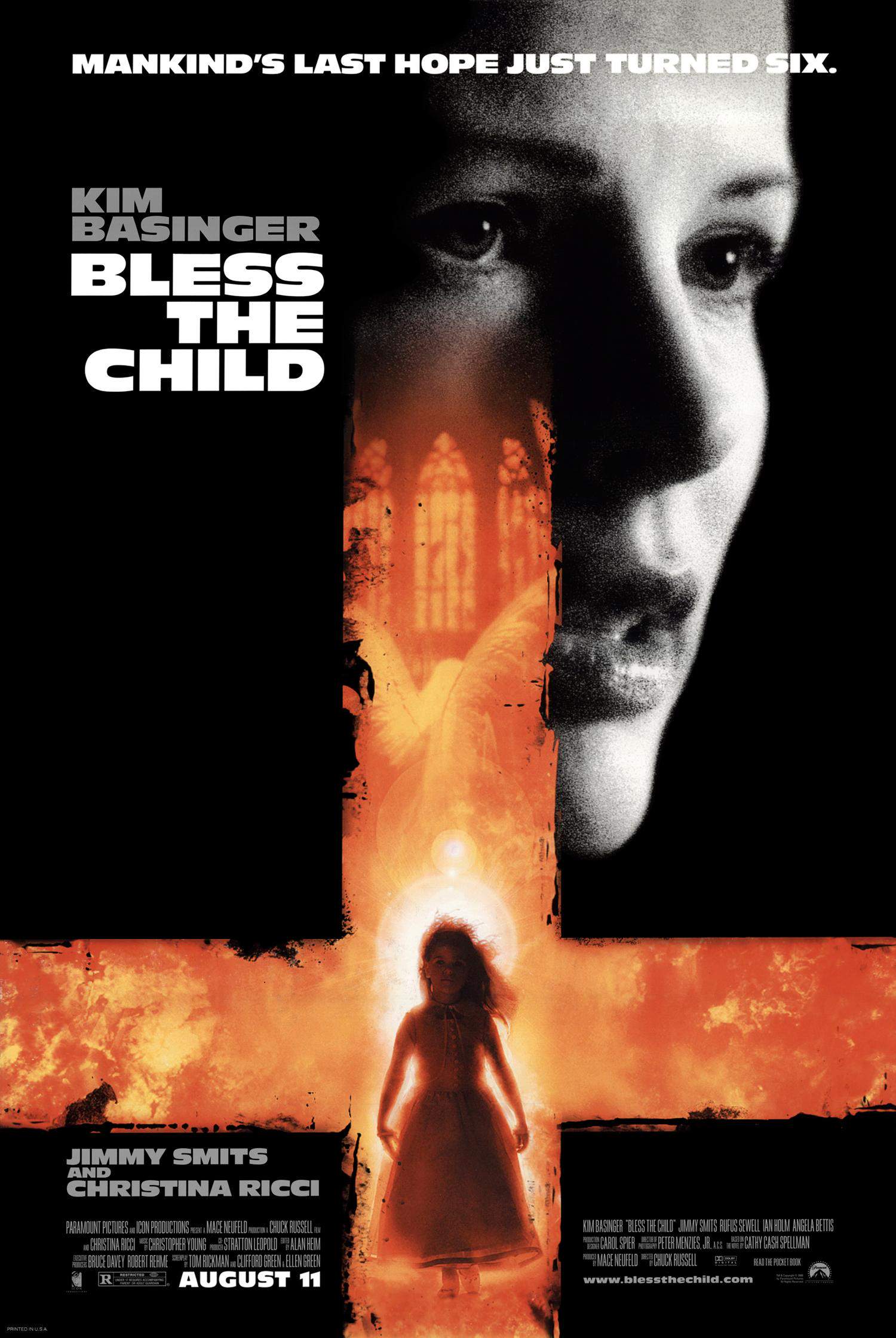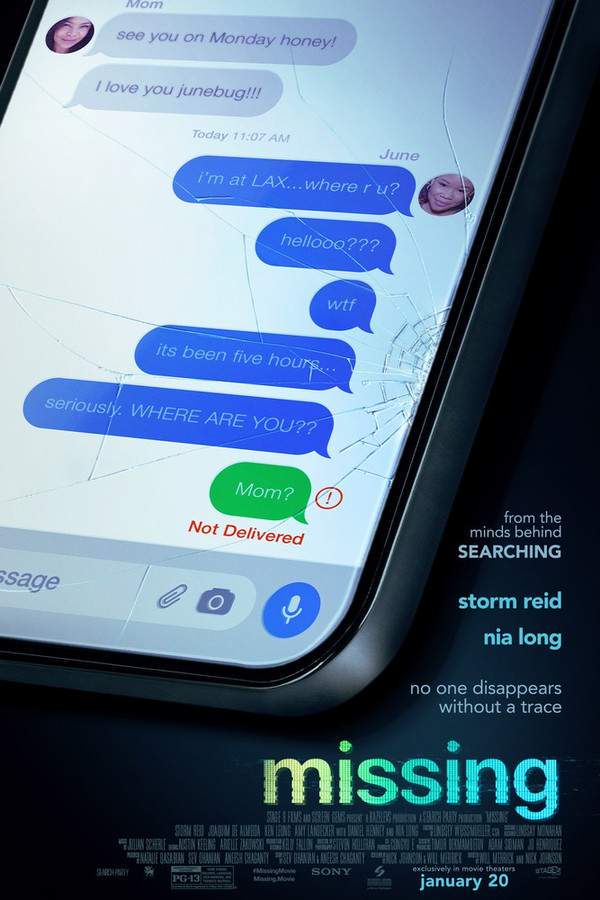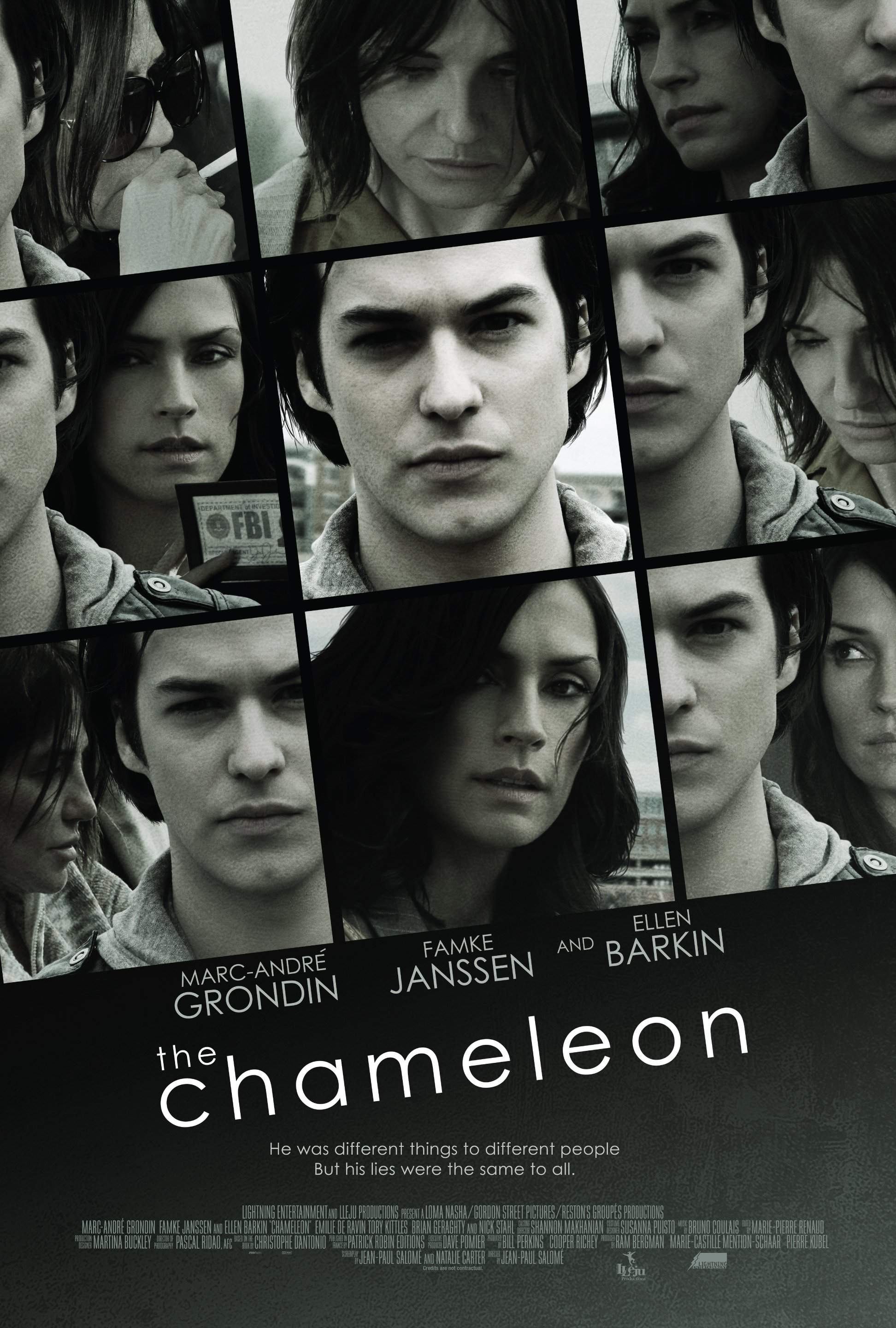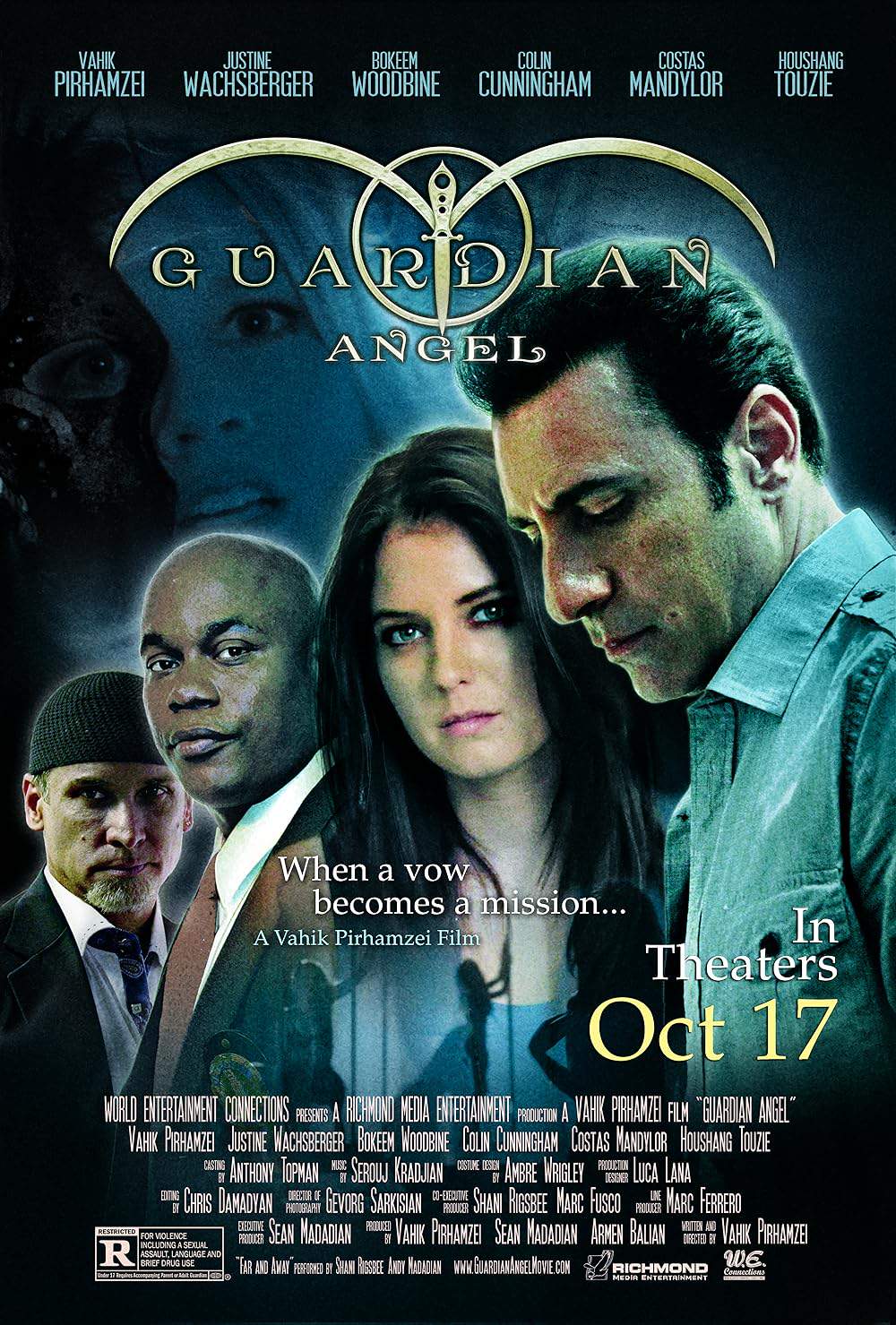Changeling 2008

In 1920s Los Angeles, a mother's life is upended when her son disappears. She is then presented with a boy who claims to be him, but she believes he is not her child. Despite the doubts of the police and her family, the determined mother refuses to give up her search. She teams up with a politically active reverend to fight for justice and uncover the truth behind her son's disappearance and the systemic corruption that hinders her quest.
Does Changeling have end credit scenes?
Yes!
Changeling does have end credit scenes. Stay until the very end!
Meet the Full Cast and Actors of Changeling
Explore the complete cast of Changeling, including both lead and supporting actors. Learn who plays each character, discover their past roles and achievements, and find out what makes this ensemble cast stand out in the world of film and television.
External Links and Streaming Options
Discover where to watch Changeling online, including streaming platforms, rental options, and official sources. Compare reviews, ratings, and in-depth movie information across sites like IMDb, TMDb, Wikipedia or Rotten Tomatoes.
Ratings and Reviews for Changeling
See how Changeling is rated across major platforms like IMDb, Metacritic, and TMDb. Compare audience scores and critic reviews to understand where Changeling stands among top-rated movies in its genre.

63
Metascore
7.6
User Score


62%
TOMATOMETER

82%
User Score

7.7 /10
IMDb Rating

76
%
User Score
Take the Ultimate Changeling Movie Quiz
Challenge your knowledge of Changeling with this fun and interactive movie quiz. Test yourself on key plot points, iconic characters, hidden details, and memorable moments to see how well you really know the film.
Changeling Quiz: Test your knowledge on the gripping story of Christine Collins as she seeks the truth about her missing son in 'Changeling'.
In which year does 'Changeling' take place?
1925
1928
1930
1935
Show hint
Awards & Nominations for Changeling
Discover all the awards and nominations received by Changeling, from Oscars to film festival honors. Learn how Changeling and its cast and crew have been recognized by critics and the industry alike.
81st Academy Awards 2009

Art Direction
Cinematography
62nd British Academy Film Awards 2009
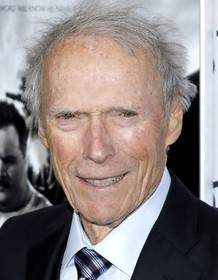

Best Original Screenplay
Best Cinematography
Best Costume Design
Best Editing
Best Production Design
Best Sound
14th Critics' Choice Awards 2009
15th Annual Screen Actors Guild Awards 2009

24th Artios Awards 2009
Outstanding Achievement in Casting - Big Budget Feature - Drama
66th Golden Globe Awards 2009


35th Saturn Awards 2009
Best Director
Full Plot Summary and Ending Explained for Changeling
Read the complete plot summary of Changeling, including all major events, twists, and the full ending explained in detail. Explore key characters, themes, hidden meanings, and everything you need to understand the story from beginning to end.
On March 9, 1928, Christine Collins begins her day with her son, Walter, playfully measuring his height against the wall as she prepares him for school. After a lighthearted farewell at the cable car stop, where Walter shares that he got into a fight after another child claimed his father hated him, Christine reassures him that his father was simply overwhelmed by the responsibilities of parenthood and left before he could build that bond. However, after Christine goes to work as a supervising phone operator for a telephone company in Los Angeles, the joyous routine turns tragic when Walter mysteriously disappears.
Despite initially receiving minimal help from the police, led by Captain J.J. Jones, and Detective Lester Ybarra, she takes matters into her own hands, calling other cities in desperation as they search for Walter. As time ticks on, a new challenge emerges: a boy appears in the news claiming to be Walter. Caught in a whirlwind of media attention, Christine’s hope peaks until she finds glaring inconsistencies that suggest this child, although given to her as a police recovery, is not her son. The misidentified child, who eventually turns out to be Arthur Hutchins, does not mimic Walter’s mannerisms and exhibits physical differences that trigger Christine’s maternal instincts.
When Christine insists the boy isn’t her son, she faces mounting pressure from the police, including the dismissive treatment by Captain Jones. After vehemently defending her stance, she’s left with no choice but to fight back against a corrupt and uncaring system that threatens to label her as unstable. Fighting against the institution, she courageously speaks out, gathering evidence and support from allies like Rev. Gustav Briegleb, seeking justice for the injustices faced by missing children.
As the investigation unfolds with chilling discoveries relating to her real son, Christine’s battle turns her life upside down, driving her into an asylum as she fights against being deemed insane for refusing to accept the false narrative imposed by the police. In a harrowing twist, she learns about the existence of other boys and a grim fate awaiting them, leading her to uncover deeper truths that will force the authorities to respond to the severity of their incompetency.
Eventually, against a backdrop of trials, accusations, and heartbreaking revelations regarding Northcott’s heinous crimes, Christine emerges not just as a mother on the hunt for her child but as a symbol of resilience, courageously standing against the systemic neglect of the institution. While the relentless search for Walter Collins ends tragically, Christine gains something more profound from her fight: hope. Always hoping for a brighter tomorrow, believing that perhaps Walter survived, living in secret, waiting for the day he could reunite with her, and reaffirming that the bond between a mother and her child can never truly be severed.
Uncover the Details: Timeline, Characters, Themes, and Beyond!

Coming soon on iOS and Android
The Plot Explained Mobile App
From blockbusters to hidden gems — dive into movie stories anytime, anywhere. Save your favorites, discover plots faster, and never miss a twist again.
Sign up to be the first to know when we launch. Your email stays private — always.
Watch Trailers, Clips & Behind-the-Scenes for Changeling
Watch official trailers, exclusive clips, cast interviews, and behind-the-scenes footage from Changeling. Dive deeper into the making of the film, its standout moments, and key production insights.
Cars Featured in Changeling
Explore all cars featured in Changeling, including their makes, models, scenes they appear in, and their significance to the plot. A must-read for car enthusiasts and movie buffs alike.
Changeling Themes and Keywords
Discover the central themes, ideas, and keywords that define the movie’s story, tone, and message. Analyze the film’s deeper meanings, genre influences, and recurring concepts.

Unlock the World of Movies with Our Comprehensive Wiki
Dive into our Movie Wiki for in-depth film encyclopedia entries, including cast biographies, production trivia, plot synopses, behind-the-scenes facts, and thematic analyses. Whether you’re researching iconic directors, exploring genre histories, or discovering hidden easter eggs, our expertly curated movie database has everything you need to fuel your cinematic passion.

Similar Movies To Changeling You Should Know About
Browse a curated list of movies similar in genre, tone, characters, or story structure. Discover new titles like the one you're watching, perfect for fans of related plots, vibes, or cinematic styles.
Quick Links: Summary, Cast, Ratings, More

What's After the Movie?
Not sure whether to stay after the credits? Find out!
Explore Our Movie Platform
New Movie Releases (2025)
Famous Movie Actors
Top Film Production Studios
Movie Plot Summaries & Endings
Major Movie Awards & Winners
Best Concert Films & Music Documentaries
Movie Collections and Curated Lists
© 2025 What's After the Movie. All rights reserved.















